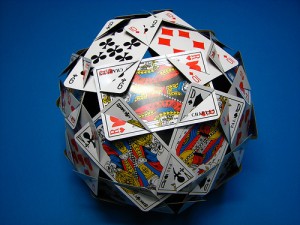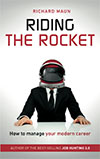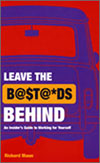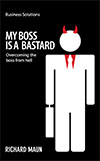better business blog
Tips and stories to add value to you and your organisation

Four Ways That Two Ego States Interact
There are many ways that we can interact with eachother and now that school’s out for the summer there will be many families who witness more whinging, sulking and general grousing. And that’s just from mum and dad….
…you can almost smell the Child Ego State at work here and when we think about being in our Parent or our Child there are four typical ways people tend to communicate. Of course there are always nuances of behaviour and complex conversations, so all we’re doing here is taking a fat brush to conversations and painting them in four big stripes.
1) Parent to Parent
Arguing over who’s in charge, or who really knows best…you see this in the school playground when two mums tell eachother how they would run the school. Also, this is often seen when two managers at work are talking at (not to) each other to establish who is top dog.
2) Parent to Child
Telling someone what to do and expecting them to be a good boy/girl and get on with it. This is sometimes disguised as ‘asking’ and can still be telling…this is what my Child tends to rebel against, when it has flounced off in a huff, to sulk for a bit. Telling and asking can also be friendly and supportive, so we don’t want to think of things as just being negative. Likewise, when we’re taking care of our team, or partner, it’s likely that our Parent is addressing their Child.
3) Child to Parent
If we’re unsure, nervous, unwell, or need someone to guide us it’s quite likely that in our Child we will hook the other person’s Parent, so that they take the leadership position and sort things out for us. I’ve seen an unhealthy example in an office recently, where an Assistant kept using her ‘lost and confused’ look to snag a Manager into doing the work for her. Sometimes our need to be looked after is genuine and healthy and sometimes we might simply be avoiding taking responsibility ourselves.
4) Child to Child
Ever played with your partner (you can define ‘play’), or had a joke at work? Of course you have and these are classic interactions where our natural Child energy is there for all to see. Being creative, solving problems with intuition, having fun, or perhaps crying together, are all examples of when we’re all in our Child Ego State. Watch out though after a hard day at work, when both of you are in your Child and looking for someone to be the Parent and do the looking after…’No, you cook dinner!’…’NO! It’s your turn to do dinner!!’ …sound familiar?
Once we can see what is happening we can make decisions to continue or to change. Do we keep playing, or do we cook dinner, or take the lead, or ask for help? We can enjoy noticing how well we communicate with others and can stop and do things differently if we feel things spiralling into an argument.
When we’re tired or stressed it’s likely that we will be in either our Parent or our Child and so given the nature or looking after the kids for six weeks, or going ‘on holiday to relax’ many of us will have ample opportunity to spot patterns of Ego State behaviour over the summer. The trick here is to be honest and to ask for what we need from those around us. Even if that means asking the kids to prepare dinner once in a while!*
Our Task For This Week
Is to…have fun noticing Ego States. Perhaps watch EastEnders….who is in their Parent and who is in their Child?
Amazon Review
Job Hunting 3.0 has had it’s first review (thank you) and if you have read the book please do add your review to Amazon as they make a difference. Just click here – thank you!
Pass It On
If you know someone who would be interested in this blog post please forward it to them, or ReTweet it, or let them know they can subscribe to regular emails via the box on the homepage.
Thank you for reading to the end…
Next week is about the Adult Ego State and part two of ‘Icecream Story’…
*Assuming you’re not expecting a five year old to rustle up anything too fancy!
Tags: Child Ego State, Parent Ego State, tip, Transactional Analysis
The Parent Ego State
Here’s a dilemma: Should I go to the beach or stay in and do some work? Naturally my Child wants to go and play and yet there’s a voice in my head that whispers caution…it would make sense to take advantage of a quiet house. I could get some work done and then have some time off to play. I ought to use the opportunity and tick off a couple of items on my to-do list…
When you re-read that dilemma it looks like you can ‘hear’ two people struggling to get their point across. In my Child Ego State I want to go and build sand castles and the other voice is my Parent Ego State, which is telling me what really is the best thing to do.
Who Is In Your Head?
The term ‘Parent Ego State’ refers to the collection of other people who have influenced us and who we carry around in our head. We carry their words and phrases and ways of thinking around with us and when we replay them, we’re said to be in our Parent Ego State. So, when I’m saying to myself that ‘I should be doing some work’ what I’m doing (in TA terms) is replaying a tape of Mum, or Dad encouraging me to work. Our heads are full of the voices from the past and we take them on board by a process called Introjection, which means we just absorbed them in directly without considering their meaning or purpose. We tend to do this at a young age and most of the tapes relate to the key influences we had at that time. Perhaps our family, our first teacher, a neighbour, or aunt or big brother all left their mark on us. Because we were young we didn’t question what we heard we just sucked it up and added it to our store of memories.
Leadership And Taking Care
Now that we’re ‘grown ups’ we use these people to guide us and sometimes they’re helpful. We follow their rules and use their advice to make decisions. We copy what they did (or said to do) to take care of ourselves and others. Sometimes we need a bit of leadership and sometimes we need to look after people, so these influences can be helpful to have.
However…
We might also carry around rubbish. We might have too many rules and these limit our freedom to act, or set restrictions on how we can have fun. We might have learned to take care of people by ‘smothering’ them with love or affection, or by telling them what to do before they’ve had a chance to ask for help. This isn’t a great way of taking care and is often the root cause of well meaning, but patronising behaviour.
The chances are that we all have a few rocks in our head and part of life is about recognising them, smiling when we trip over one and then doing what makes sense to us now. Often when we use the words should, ought, must we are in our Parent Ego State and are trotting out someone else’s wisdom, or rules.
So What?
Knowing about Ego States is useful because we can think about our behaviour and can decide to make changes. We can find new people to guide us, or can challenge what’s in our head and can stop doing the work and can build sand castles instead. That’s what I did on Sunday. And I had an icecream and I swam in the sea. It was great.
Eric Was Here First
I was asked by someone if I ‘credited Berne’s work’ in my Ego State-related posts sometimes, as Eric Berne was the founder of TA and someone who came up with many of the models. This was a real Parental instruction, the smugness of which instantly made my Child feel rebellious (my Child hates being out-smugged). So, in the spirit of rebellion I thought it would make a great blog post for next week: How the Parent and Child Ego States interact. Can you guess how they get on and how they get stroppy?
Eric Wasn’t Here First
Sadly for my credit-hound Berne didn’t invent Ego States, which is why I haven’t credited him as such. He based his work, and freely acknowledged it, on the ego psychology described mainly by Paul Federn and developed by Edoardo Weiss. What he did do was suggest that the archaic parent/child influences were also employed alongside a more grounded and rational position, which he called the Adult. We’ll meet the Adult Ego State in the future. He also drew some models and said lots of clever and thoughtful things and we love him for that too.
Our Task For This Week
Is to…spot one thing that we do, or don’t do, that is based on one of our Parental tapes. When we find the thing, we need to ask if it’s helpful, or if it is getting in the way and needs to be ejected. Listen out for the shoulds and oughts as they are often a big clue. Should we do that thing? Really???
Amazon Review
Job Hunting 3.0 has had it’s first review (thank you) and I’ve been told an excerpt is likley to be in the Sunday Times too, so that’s two good things to celebrate. If you have read the book please do add your review to Amazon as they make a difference. Just click here – thank you!
Pass It On
If you know someone who would be interested in this blog post please forward it to them, or ReTweet it, or let them know they can subscribe to regular emails via the box on the homepage.
Thank you for reading to the end and remember to begin spotting when you’re in your Parent. If you want to, that is.
Next week is about when the Parent and Child battle it out…and get on sometimes.
e-publishing
Click icon for details


recent posts
browse archive
books
Click cover to view details on Amazon
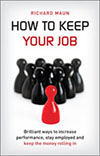
How to Keep Your Job
Brilliant ways to increase performance, stay employed and keep the money rolling in
Published 2011 Marshall Cavendish
208pp
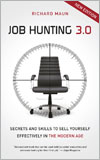
Job Hunting 3.0
Secrets and skills to sell yourself effectively in the Modern Age
Published 2010 Marshall Cavendish
260pp

 RSS
RSS